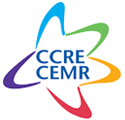
Montenegro Unitary state
| MONTENEGRO | / REFORMS |
Reforms
Despite the decline in local budgets on account of the crisis, several changes to the law on local governments support the idea of increased decentralisation in Montenegro.
Since the beginning of the economic and financial crisis, the law on local and regional authorities in Montenegro has undergone three modifications: in 2009, in 2010 and in 2012. Certain competences, mainly those concerning regional and urban development as well as consumer protection, were thus decentralized and entrusted to the country’s 21 municipalities.
New rules on the financing of local governments were instituted as well. It should also be noted that municipal resources have shrunk since the onset of the crisis. Furthermore, programmes to improve efficiency and carry out internal audits in the municipalities were set up to reduce public administration costs.
A few modifications have also affected local elected representatives. The municipal term of office has been shortened from five to four years. Mayors are now elected by the municipal assembly instead of direct election.
Local self-government in Montenegro:
Even though decentralization measures have bolstered the municipalities’ powers, the economic and financial crisis has increased their dependence on the central state in terms of financial transfers.
KEY REFORMS
- Since the outbreak of the economic and financial crisis, Montenegro has amended its local government legislation three times, in 2009, 2010 and 2012:
- Decentralisation of regional development and consumer protection powers
- New funding rules
- Municipal audit programmes
- New local representative election rules





